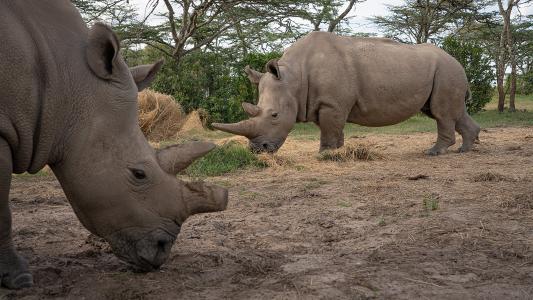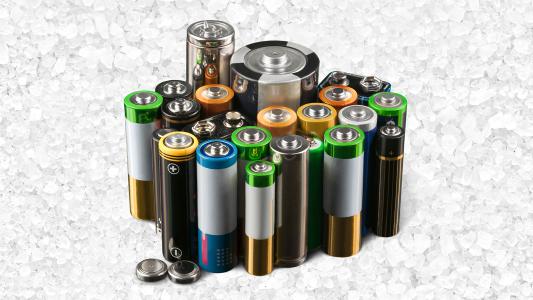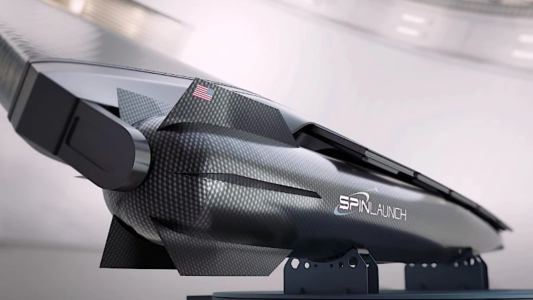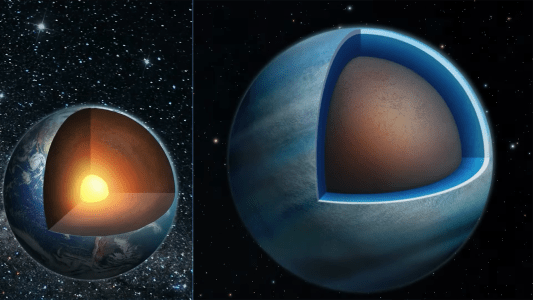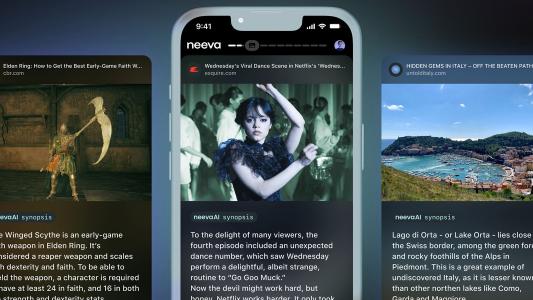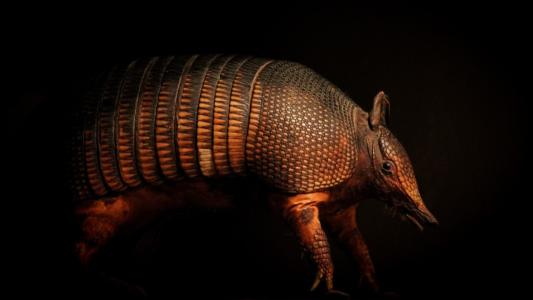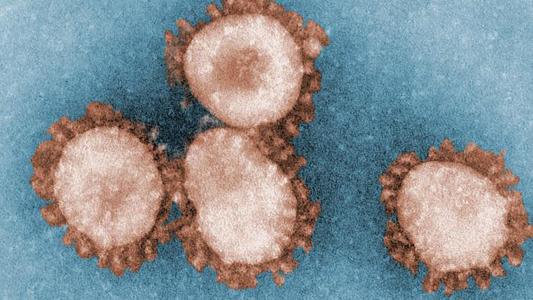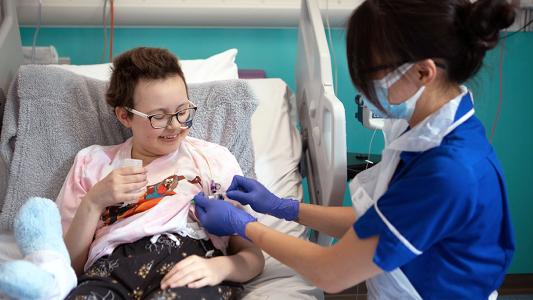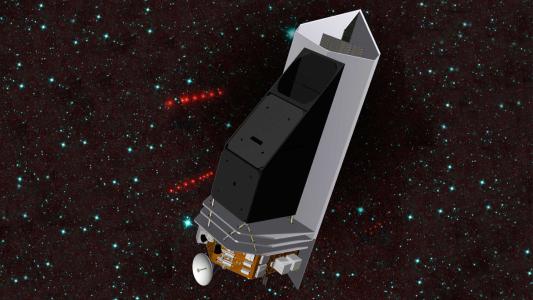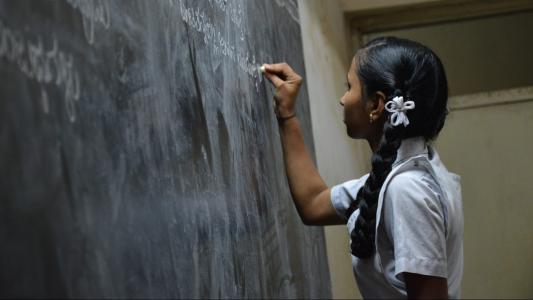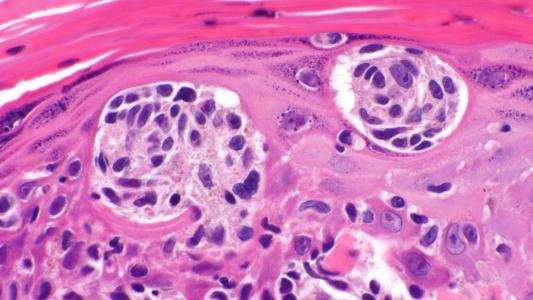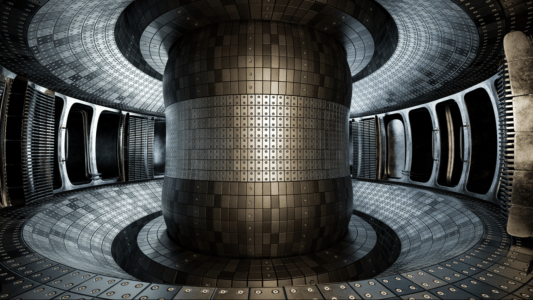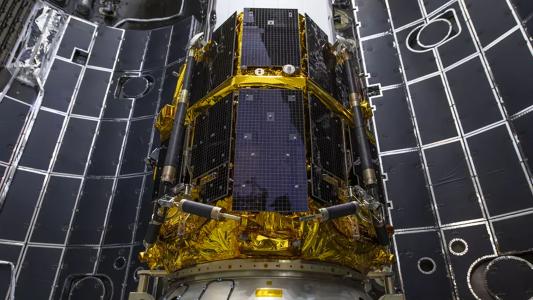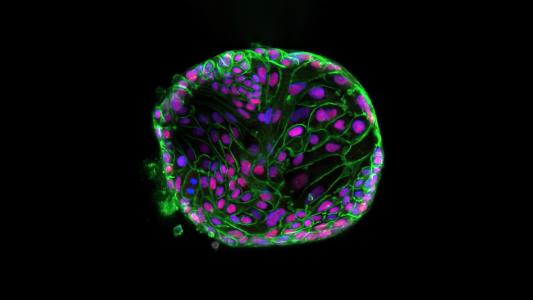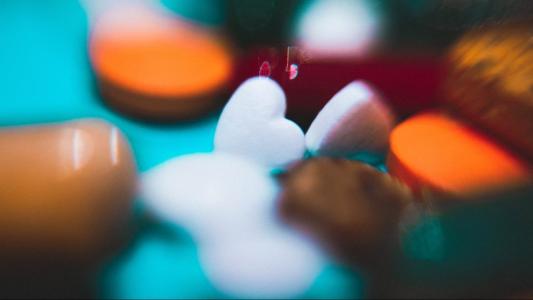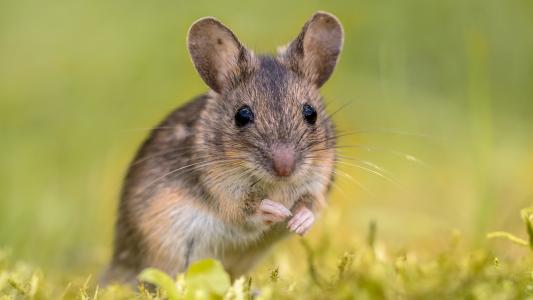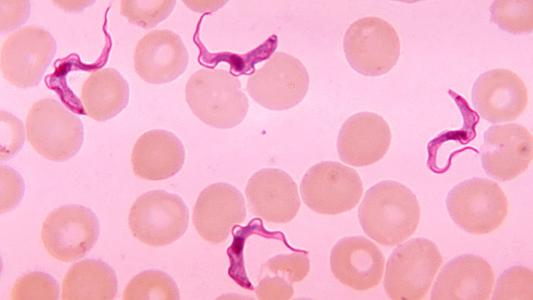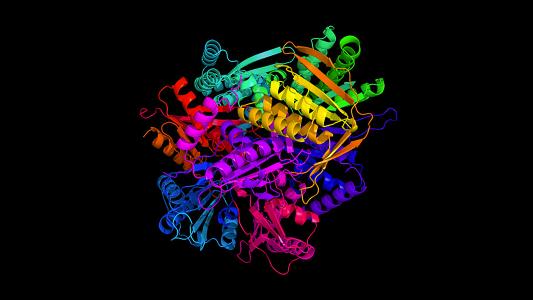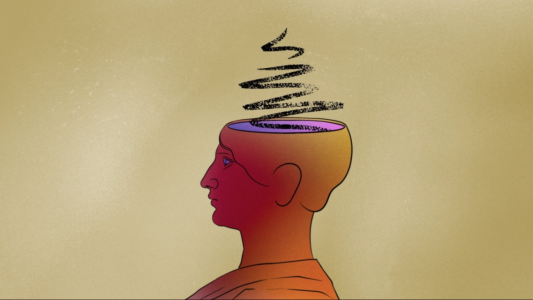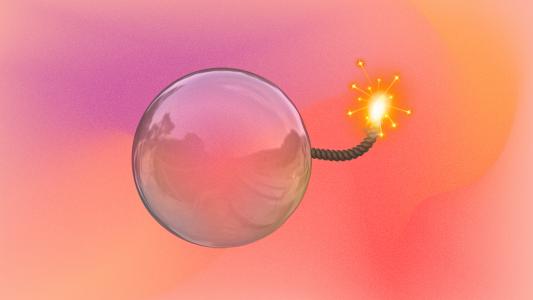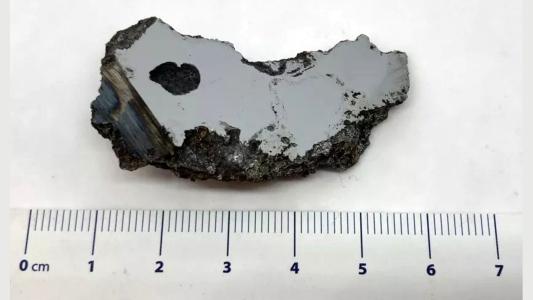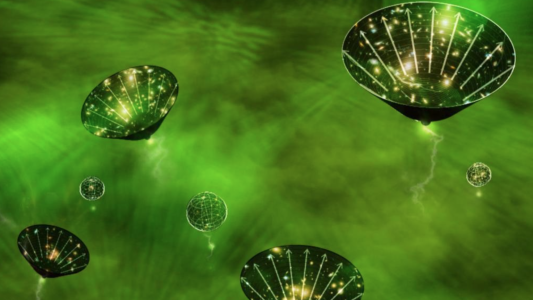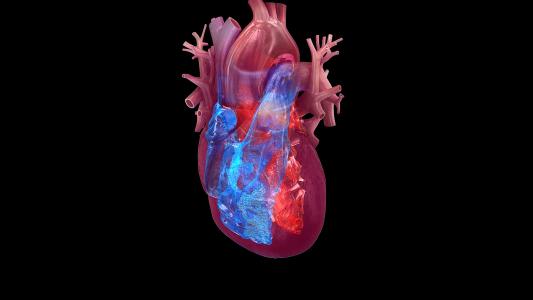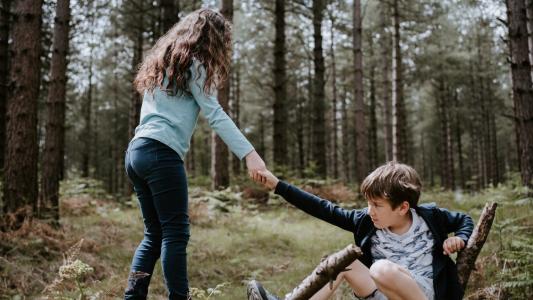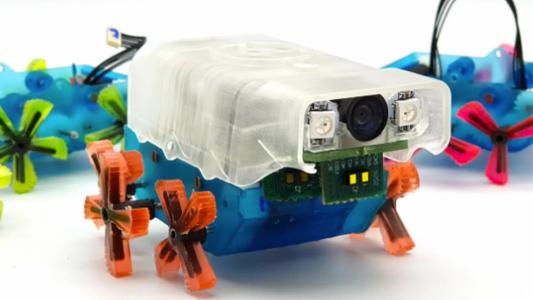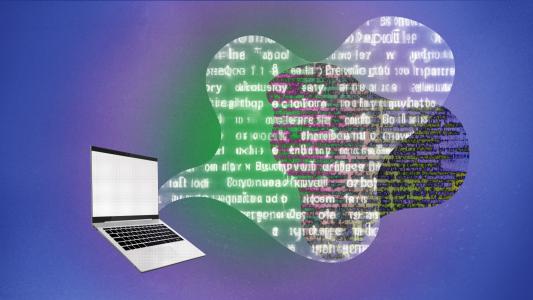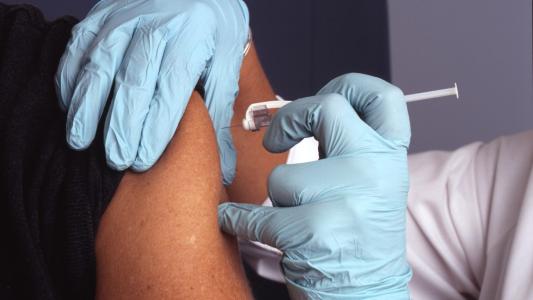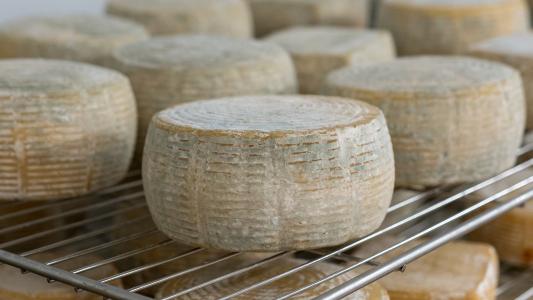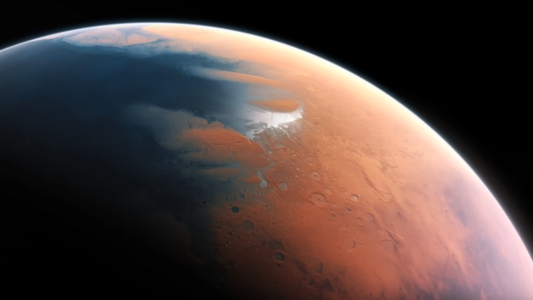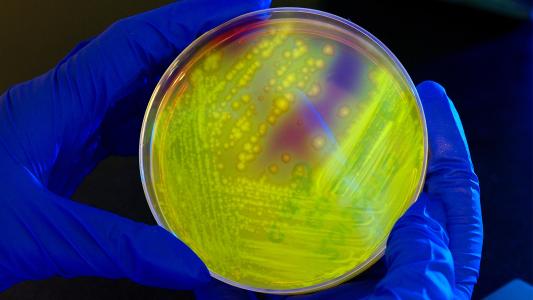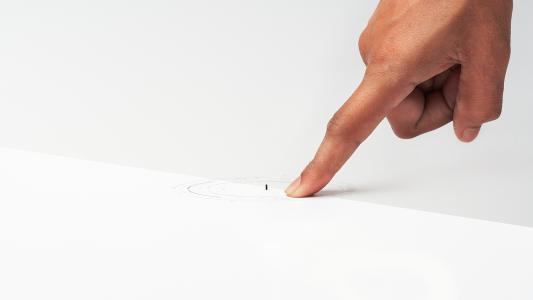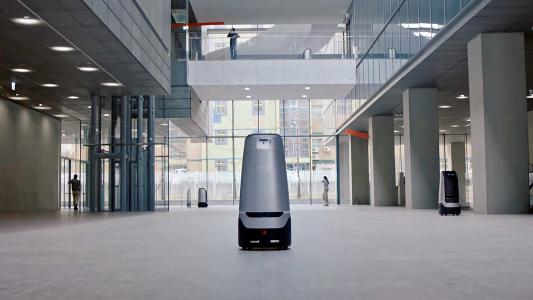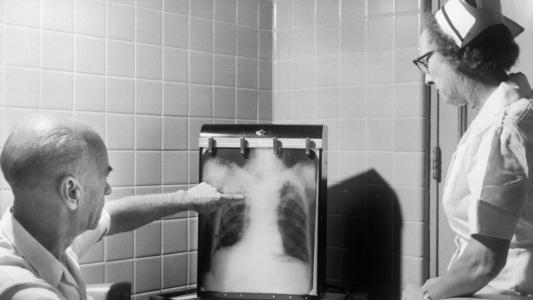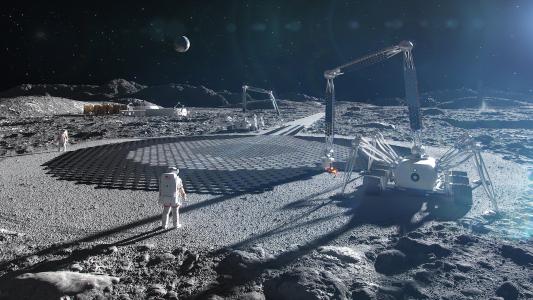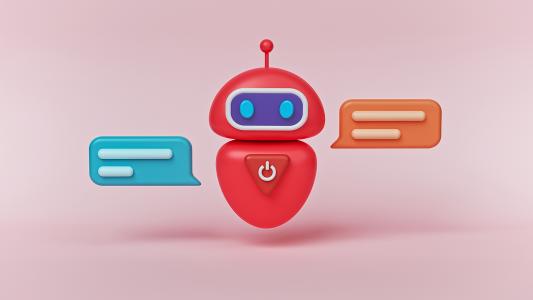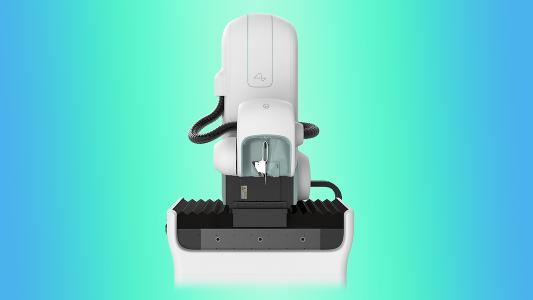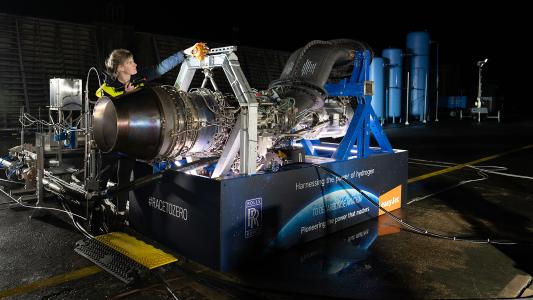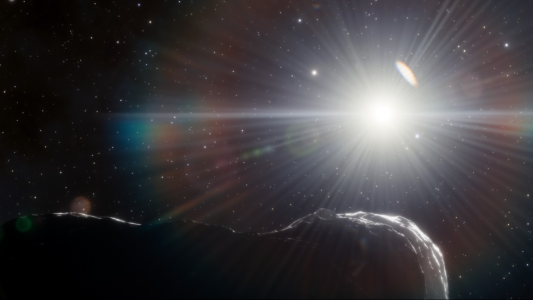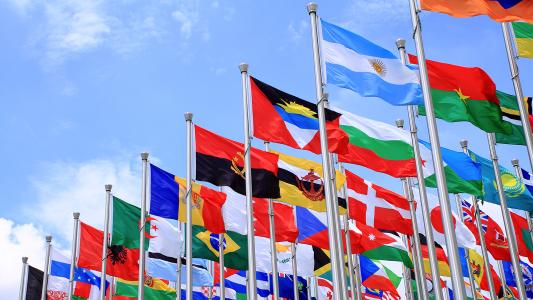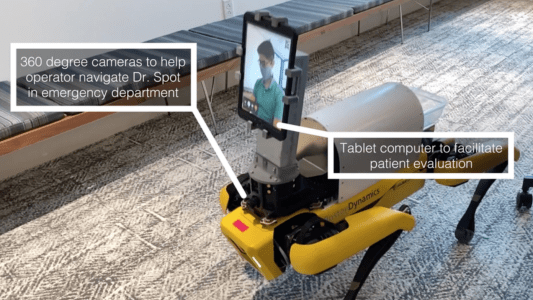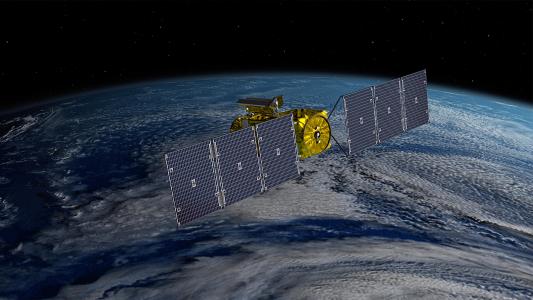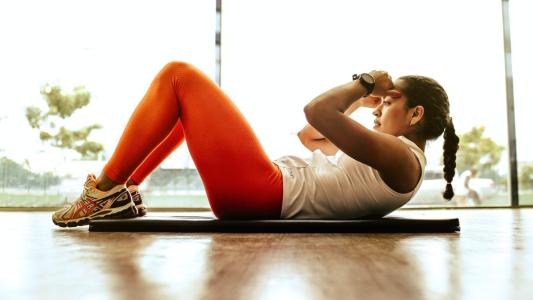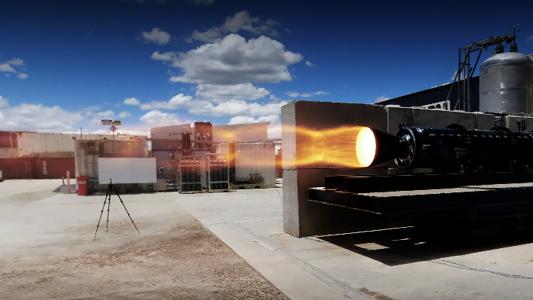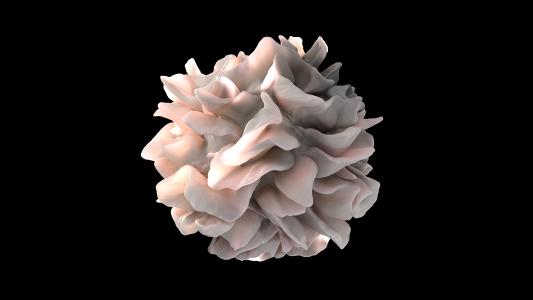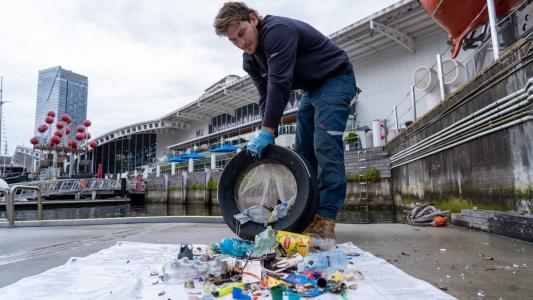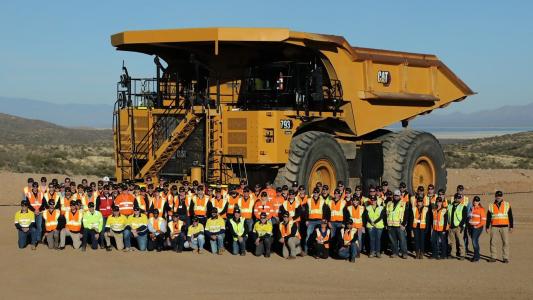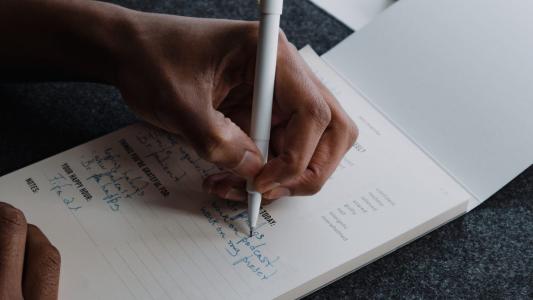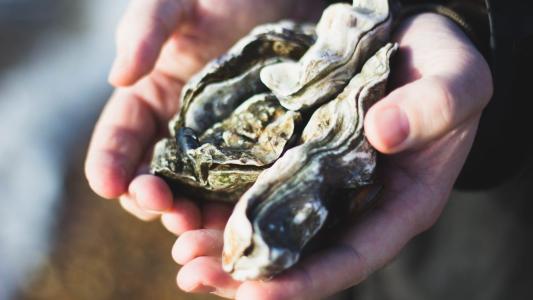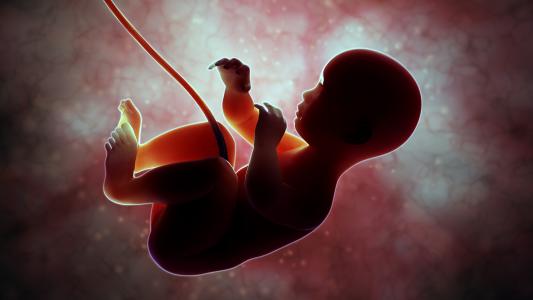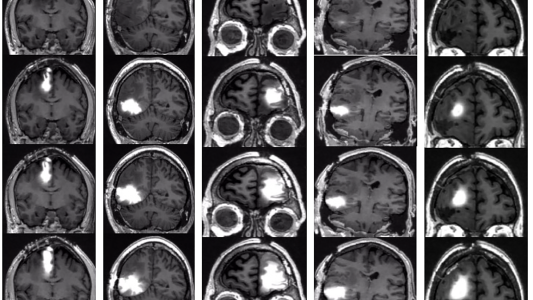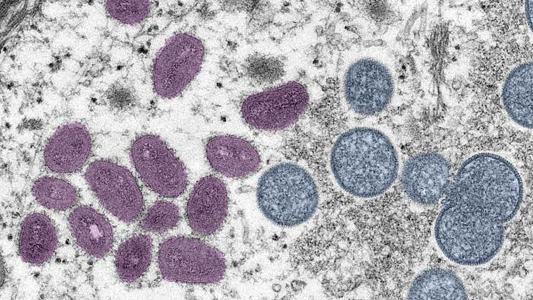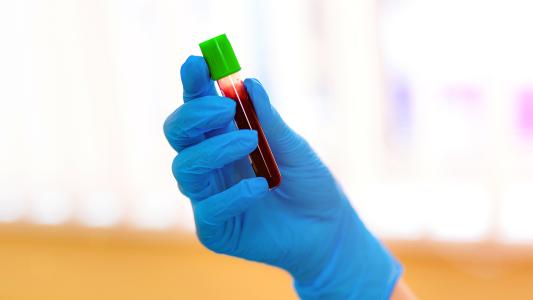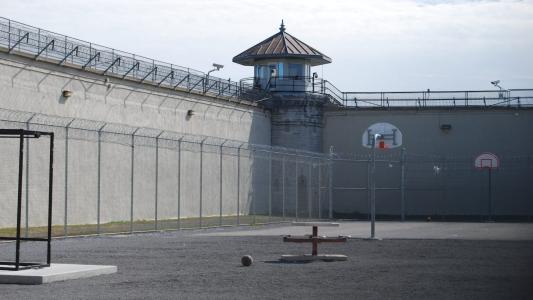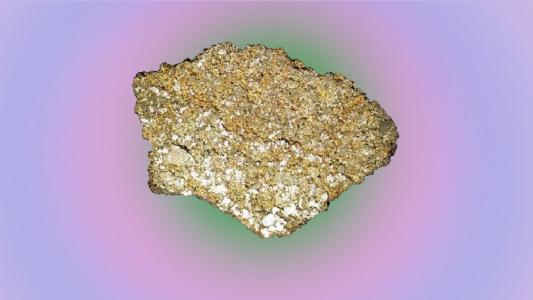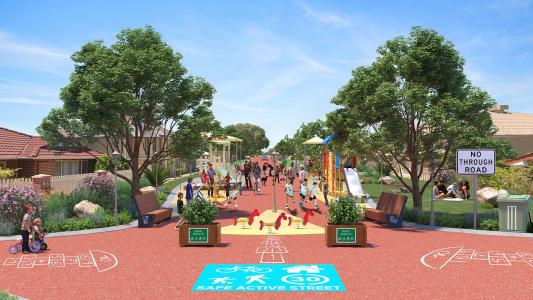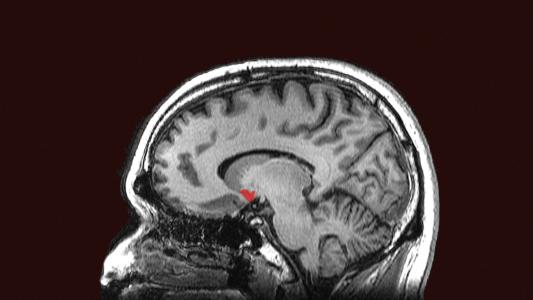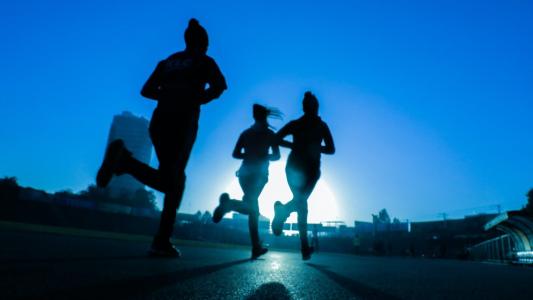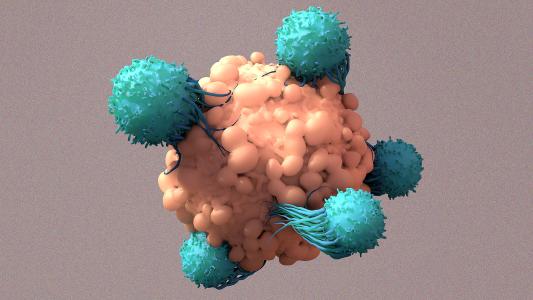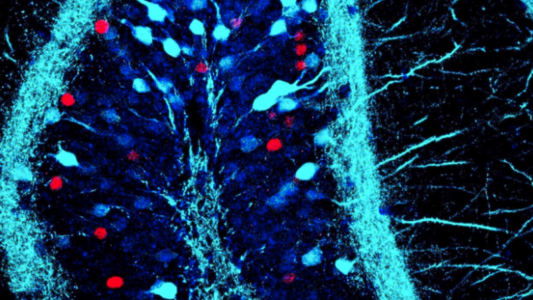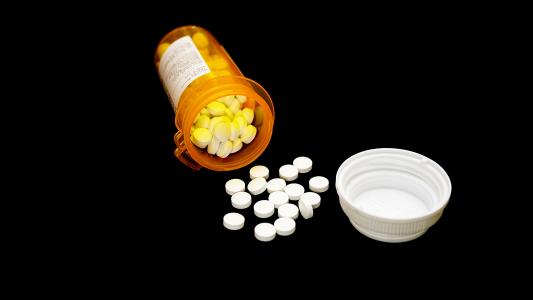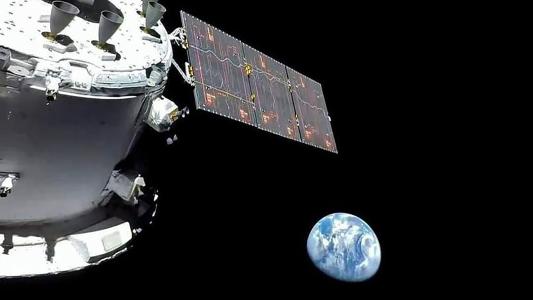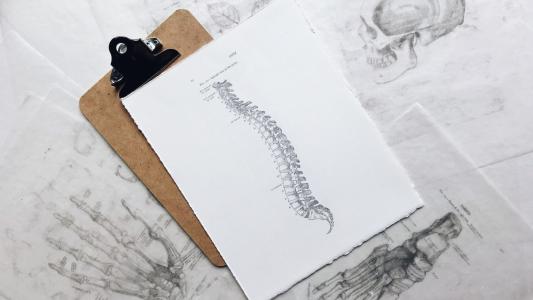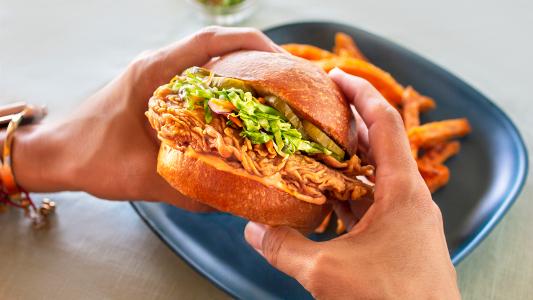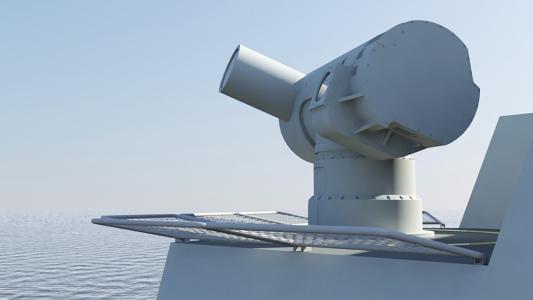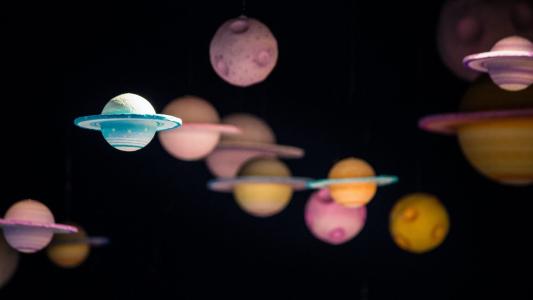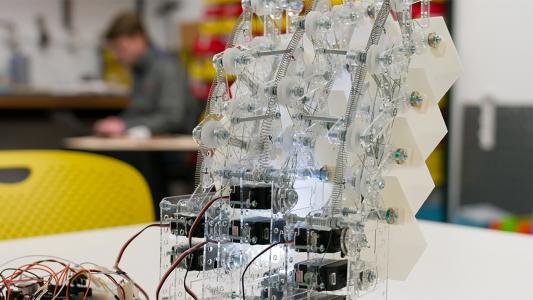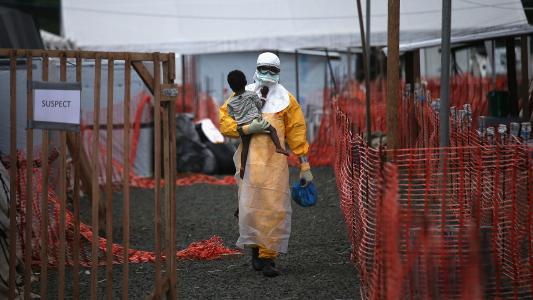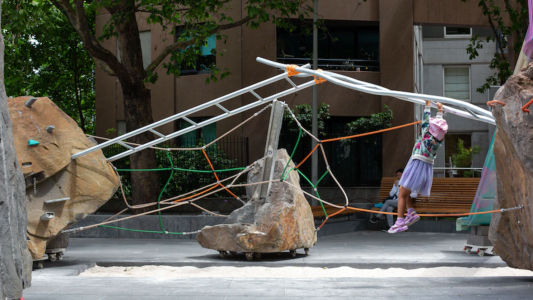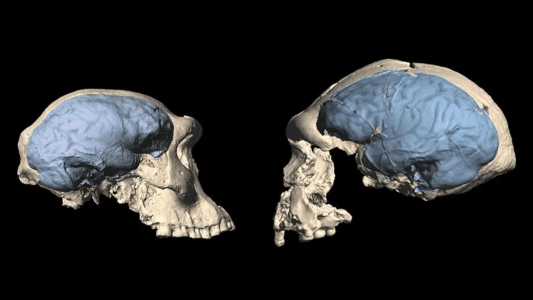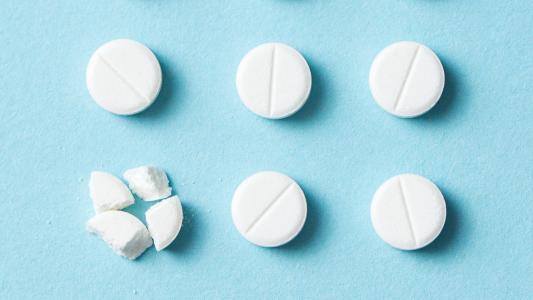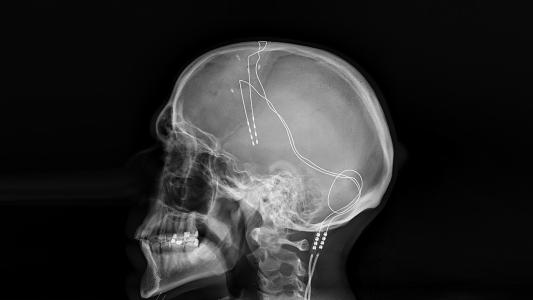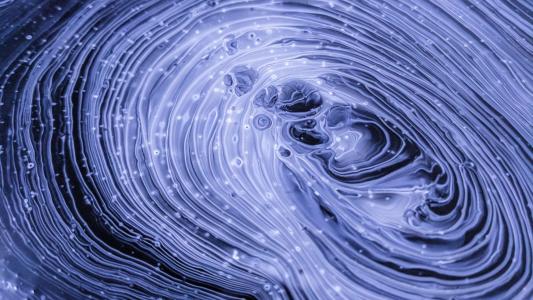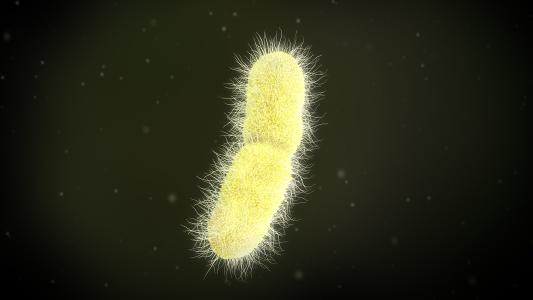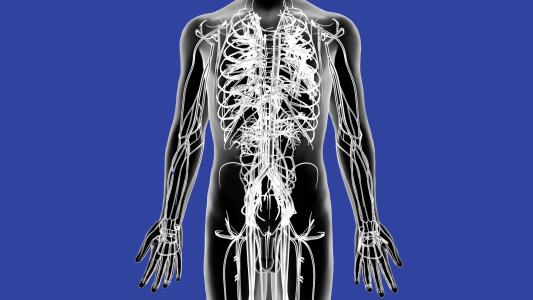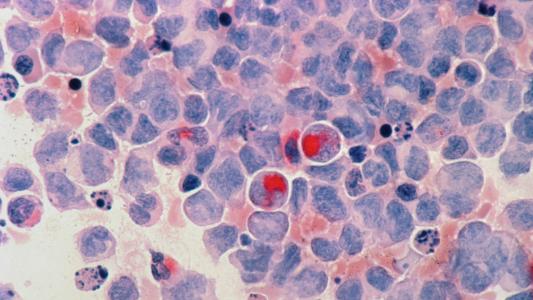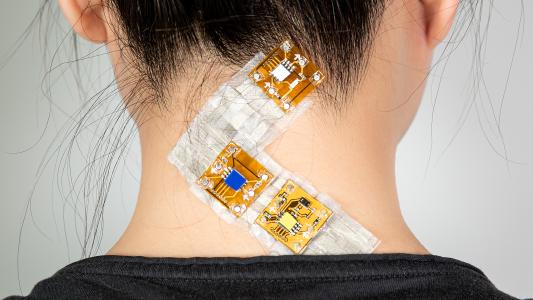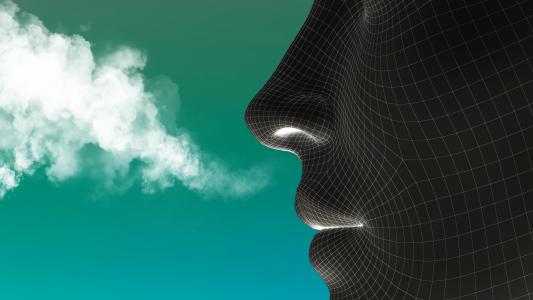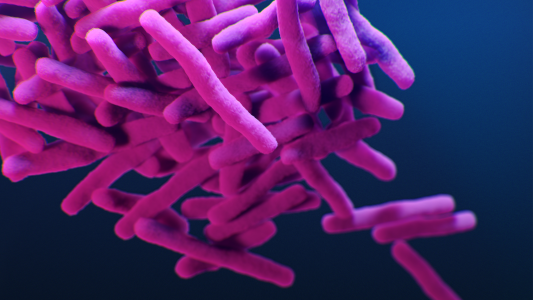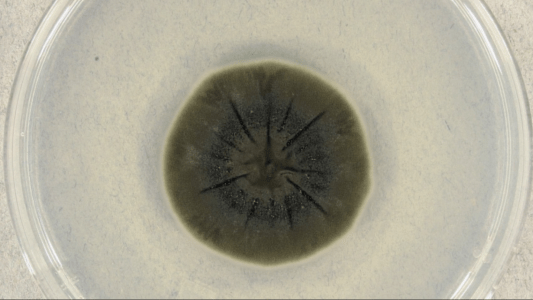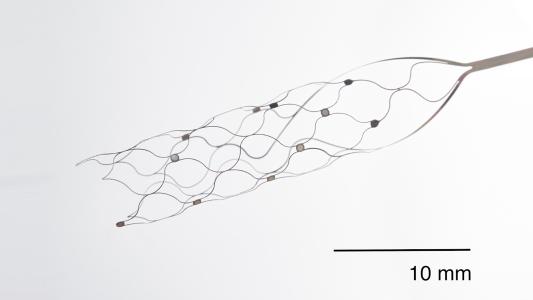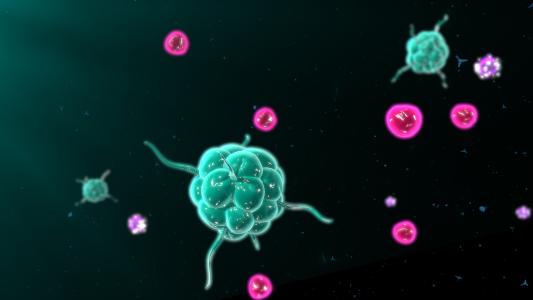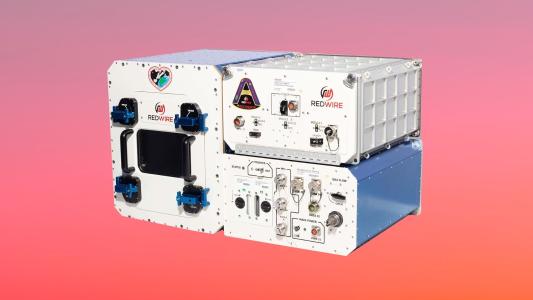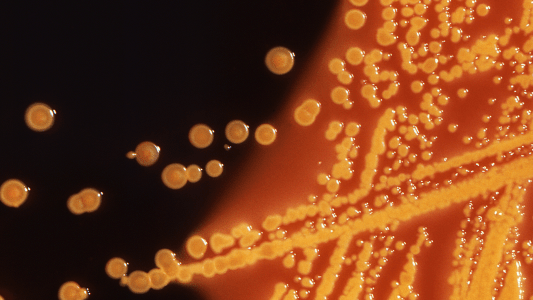Stem cell breakthrough could save the northern white rhino
To save the northern white rhino species from extinction, researchers are turning stored rhino tissue samples into sperm and egg cells.
New battery is cheaper than lithium-ion with four times the capacity
A new type of room temperature sodium-sulfur (RT Na-S) battery could help solve the renewable energy storage problem.
Will physics prevent SpinLaunch from succeeding?
SpinLaunch has a working prototype successfully launching objects at 1,000 miles-per-hour, but will the laws of physics stand in the way?
Twin exoplanets may be the first known “water worlds”
Twin exoplanets 218 light years from Earth may be the first known examples of “water worlds.”
Ad-free search engine to launch ChatGPT-like AI feature
The ad-free Neeva search engine is adding an AI feature that will answer user queries with conversational text, rather than lists of links.
Armadillo experiment suggests that we can regenerate human livers with leprosy
M. leprae-infected armadillos develop enlarged, healthy livers with gene expression patterns similar to human fetal livers.
New “future-proof” drug can fight COVID-19 and the common cold
Researchers have identified a compound capable of stopping multiple coronaviruses in cell and tissue models.
First-of-its-kind therapy sends girl’s incurable cancer into remission
A first-of-its-kind CAR T-cell therapy sent a UK girl’s blood cancer into remission when all other treatments failed.
An Earth-sized planet found in the habitable zone of a nearby star
For a long time, only two habitable zone planets of any size were known to astronomers: Earth and Mars. But NASA's discovered another.
Extra-salty lithium battery less likely to catch fire
Stanford researchers have developed a battery electrolyte that can allow lithium-ion batteries to operate safely at much higher temperatures.
World’s first asteroid-hunting spacecraft to launch in 2028
NASA has announced plans to launch the world’s first asteroid-hunting spacecraft — the $1.2 billion NEO Surveyor — in 2028.
“Personalized curriculums” could get kids to care about school again
Personalized learning has to potential to prepare learners who are self-regulating and self-motivated for life beyond school.
Moderna’s mRNA cancer vaccine reduces risk of recurrence or death by 44%
Moderna’s new mRNA cancer vaccine reduced melanoma patients’ risk of recurrence or death by 44% compared to a standard treatment alone.
Anxiety treatment in early childhood can lower long-term mental health risks
Some anxiety is normal and, in fact, necessary and helpful. But what happens when it interferes with a child's daily functioning?
Here’s what that fusion power breakthrough really means
This year, NIF reports that it has achieved "ignition" — that is, it has achieved slightly more fusion energy output than laser energy input.
SpaceX launches groundbreaking Japanese lunar lander
A lunar lander built by Japanese aerospace startup ispace is poised to be the first private spacecraft to soft land on the moon.
Cheap liver drug can prevent COVID-19
A cheap, readily available drug used to treat liver disease could also prevent COVID-19 infections — regardless of the variant.
A new class of antidepressant works in 2 hours
Most types of antidepressants work by increasing neurotransmitter levels throughout the brain, which take weeks. A new drug takes hours.
New CRISPR tech makes it possible to wipe out invasive mice
Australian researchers have developed a gene drive that renders female mice infertile, opening the door to a new type of pest control.
Earth’s magnetic field supports biblical stories of destruction of ancient cities
By utilizing the ancient orientation of the Earth’s magnetic field, scientists have been able to piece together the history of ancient Judea.
Breakthrough drug cures sleeping sickness with one dose
A new, one-dose treatment for lethal sleeping sickness was 95% effective at clearing the parasite from patients.
“DALL-E 2 of biology” designs proteins for new drugs
The Chroma AI's ability to design proteins with structures no one has ever seen before could revolutionize medicine.
3 rules to express your thoughts so that everyone will understand you
Alan Alda recommends making no more than three points, explaining difficult ideas in three ways, and repeating key points three times.
These tiny bubbles are “warheads” for killing cancer
By combining tiny nanobubbles with ultrasound, Israeli researchers showed they can destroy tumors.
Scientists discover two brand new minerals in massive meteorite
A massive, 4.5-billion-year-old meteorite located in Somalia contains two new minerals never seen before in nature.
Are we living in a baby universe that looks like a black hole to outside observers?
If the black holes that form in our cosmos give birth to baby Universes, perhaps we arose from the formation of a black hole ourselves.
Old Parkinson’s drug helps teens with type 1 diabetes
The Parkinson’s disease drug bromocriptine lowered blood pressure and reduced aortic stiffness in young people with type 1 diabetes.
Startup unveils flying taxis expected to soar over NYC in 2025
Startup Archer Aviation has just unveiled Midnight, its first electric vertical take off and landing (eVTOL) vehicle.
Parents: Don’t focus on happiness, help build resilience instead
Happiness emerges from resilience, which helps children regulate difficult emotions and stressful situations.
These “Kanga and Joey” bots will dive into the sewers, so we don’t have to
A new generation of smart, miniature robots could soon carry out the vital inspections and repairs needed to keep the sewer system afloat.
Five creative ways people are using ChatGPT
Internet users are getting creative with OpenAI’s new chatbot, ChatGPT, using it to plot movies, write menus, and more.
Scientists uncover key to future hepatitis C vaccine
While treatments are available for HCV-related infections, they are expensive, hard to access, and do not protect against reinfection.
Startup unveils $179 houseplant engineered to purify your air
Neoplants' $179 genetically engineered houseplant pulls VOCs from the air 30 times more efficiently than plants found in nature.
Bacteria breakthrough could create brand new cheese flavors
A new set of experiments has shown for the first time how the unique flavors of different cheeses can be linked to specific types of bacteria.
Ancient killer asteroid created a megatsunami on Mars
3.4 billion years ago, an asteroid impact created a megatsunami on Mars that extended for 1500 kilometers. Here's the fascinating story.
How neuroscience can make us better parents
Kids' brains develop in four main stages. Each has its own particular set of advancements and challenges for parents.
FDA approves US’s first fecal transplant therapy
The FDA has approved Rebyota, a slurry used during fecal transplant therapy to treat recurrent C. difficile infections.
Magnets pull these tiny medical robots deep into the brain
LA-based startup Bionaut Labs is developing micro-sized medical robots that are guided through the body by magnets.
What can cities do to survive extreme heat?
Urban heat waves are getting worse, but better data and timely government action could make them less deadly.
“Korean Google” opens the world’s first robot-friendly building
Tech giant Naver Corporation designed its new headquarters, 1784, to be a "robot-friendly" testing ground for its latest technologies.
How flu got milder since 1918 pandemic
The risk of death from influenza has declined over time, but globally, hundreds of thousands of people still die from the disease each year.
NASA invests $57 million in a 3D laser printer to build moon bases
NASA has invested $57.2 into construction company ICON’s 3D printer for building on the moon, Mars, and beyond.
An interview with ChatGPT about itself
Freethink interviews OpenAI’s ChatGPT, an AI chatbot capable of generating conversational text, code, and more in response to prompts.
Newly discovered gut bacteria may be a culprit behind rheumatoid arthritis
This bacteria is found only in the intestines of people with rheumatoid arthritis, and not in the intestines of healthy people.
Watch a Neuralink robot insert electrodes into a dummy brain
During a livestreamed event, a Neuralink robot precisely inserted 64 electrode-packed threads into a dummy brain in just 15 minutes.
Rolls-Royce tests its first hydrogen-powered plane engine
Rolls-Royce and easyJet have demonstrated for the first time that a modern plane engine can be safely powered by hydrogen fuel.
How to fight Covid with light
Some wavelengths of light in a range called far-UVC kill microbes in experiments and appear to be harmless to people.
What the new Earth-threatening asteroid means for humanity
In a remarkable achievement, three new large asteroids have been found in the most elusive place: inside the orbit of Earth.
Diplomacy game AI can negotiate, form alliances, and persuade people
The game of Diplomacy, based on social skills, has long been seen as a tough challenge for AI. But Meta’s CICERO has proven itself up to the task.
Astronomers detect “mystery molecule” in exoplanet’s atmosphere
Thanks to the James Webb Space Telescope, we now know more about the atmosphere of WASP-39b, a distant gas giant, than any other exoplanet.
The (robotic) doctor will see you now
Study finds patients are receptive to interacting with robots designed to evaluate symptoms in a contact-free way.
New ultra-thin solar cells could be the future of space power
Ultra-thin solar cells could extend the operational lifetimes of satellites while also making missions less costly and more efficient.
Exercise boosts the brain — and mental health
New research is revealing how physical activity can reduce and even ward off depression, anxiety and other psychological ailments.
Australia’s first rocket set to launch in 2023
Gilmour Space expects to launch its first rocket in 2023, which will add Australia to the short list of nations to send rockets to space.
A green trifecta: how a concrete alternative can cut emissions, resource use, and waste
Building materials and construction generate about 20% of global greenhouse gas emissions. What if there was an alternative?
New brain cancer vaccine completes clinical trial
Northwest Biotherapeutics reports that its new brain cancer vaccine can extend glioblastoma patients’ lives by months or even years.
Seabin: How these “floating garbage bins” can help clean up our waters
Each floating garbage bin is capable of capturing 90,000 plastic bags every year for less than $1 a day, just by being in the water.
Construction juggernaut unveils huge electric mining truck
Construction equipment manufacturer Caterpillar has demonstrated its first battery-electric large mining truck.
The science of habits
Whether you’re trying to break a bad habit or start a good one, psychologists have some tips to get you started.
Playing sea soundscapes can summon thousands of baby oysters – and help regrow oyster reefs
Researchers amplified the natural sounds of the sea through underwater speakers to draw baby oysters to swim to the location.
Deadly disease treated in the womb for the first time
In a medical first, doctors were able to prevent heart and muscle damage using enzyme replacement therapy.
New chemo pump for brain tumors could avoid side effects
A fully implantable chemo pump could help extend the lives of people with deadly brain tumors while minimizing treatment side effects.
UK study suggests single dose of monkeypox vaccine is 78% effective
A new analysis by the UK Health Security Agency has determined that one shot of a monkeypox vaccine is 78% effective at preventing infection.
$3.5 million treatment for hemophilia wins FDA approval
The FDA has approved biotech company CSL Behring's Hemgenix, a hemophilia B treatment that costs $3.5 million per dose.
How college in prison is leading professors to rethink how they teach
College in prison reduces the chance of reoffending, but it also dramatically changes the perspective of the professors who teach them.
How you breathe affects your brain
A psychiatrist and neuroscientists investigate how breathing affect the brain and biological markers of stress and immune function.
AI is helping to ID victims in Holocaust photos
The new website From Numbers to Names uses facial recognition tech to identify previously anonymous faces in Holocaust photos.
Discovery finds the Earth’s core is constantly changing the length our day
The length of our day changes slightly over a six-year period. This recent discovery has perplexed scientists for about a decade.
This meteorite material could power our clean energy future
A lab-made version of tetrataenite, a mineral found in meteorites, could replace rare earth elements in the production of permanent magnets.
Kid-friendly superblocks are a way for residents to reclaim their streets
A superblock covers several neighbourhood blocks reserved for shared use by cyclists, walkers, and residents.
Electrically stimulating the brain helps stop binge eating
Two people with binge eating disorder reported that deep brain stimulation helped them control their eating and lose weight in a small study.
When is the best time to exercise?
Though morning workouts may be optimal for circadian rhythms, afternoon exercise tends to be slightly more efficient.
New CRISPR cancer treatment tested in humans for first time
A new personalized CRISPR cancer treatment modifies the immune system's T cells to help them recognize a specific patient's tumor cells.
Good and bad memories are stored in different neurons, study finds
Positive and negative memories are stored in different parts of the brain, raising the possibility of therapeutic memory manipulation.
New fentanyl vaccine could help avoid relapses and overdoses
An in-development fentanyl vaccine that prevents the drug from entering the brain could one day help people avoid relapsing or overdosing.
NASA’s Orion spacecraft sends back first images
NASA has shared the first images from its Orion spacecraft, which is expected to do a lunar flyby on November 21.
Injectable gel repairs severe spinal cord injuries and enables mice to walk
An injectable gel that prevents scar formation and stimulates regeneration successfully repaired severe spinal cord injuries in mice.
Lab-grown meat clears major FDA hurdle
Startup UPSIDE Foods’ lab-grown chicken has passed a key FDA checkpoint, putting cultured meat one step closer to sale in the US.
UK test-fires its first high-energy laser weapon
The UK has successfully test-fired the $115 million DragonFire, its first high-powered, long-range laser weapon.
What is the largest planet out of all the ones we know?
The "upper limit" to the size of our planets is exceeded in other stellar systems, but double Jupiter's radius seems to be the limit.
Study finds mindfulness as effective as medication for anxiety
An intensive form of mindfulness was found as effective as Lexapro in treating anxiety in adults in the first head-to-head comparative study.
“Robot rooms” could be the future of homes and offices
Integrating robots into walls, ceilings, furniture, and appliances could radically change our indoor spaces.
Moderna to develop mRNA vaccines for Ebola
Moderna is reportedly nearing a deal with the DoD to develop mRNA vaccines for biological threats like Ebola
New “risky” playground could make kids anti-fragile
A new playground in Melbourne’s Southbank is the work of artist Mike Hewson, who introduces "risk" back into play.
Our ancestors first developed humanlike brains 1.7 million years ago
Using computed tomography, a team of researchers generated images of what the brains of early Homo species likely looked like.
Cheap blood pressure med could help treat alcoholism
Spironolactone, a cheap medication used to treat high blood pressure, might also be able to help people overcome alcohol use disorder.
New deep brain stimulator is powered automatically by breathing
A deep brain stimulator powered by breathing could eliminate the need for patients to undergo regular battery-change surgeries.
Brain implant translates neural activity into letters, letting a paralyzed man “speak”
A new device allowed a paralyzed patient to "speak," spelling out full sentences in real-time with an error rate of about 8%.
Old herpes drug helps kill deadly superbug
The anti-herpes drug edoxudine can weaken the deadly superbug K-pneumoniae, potentially offering a new weapon against antibiotic resistance.
Spinal cord stimulation helps paralyzed patients walk again
Swiss researchers have used epidural electrical stimulation to restore walking in nine people with chronic spinal cord injuries.
Doctors may not be ready for blood tests that screen for multiple cancers at once
MCED tests are different from existing ones because they are trying to detect early-stage cancer, when there aren’t that many tumor cells.
“SkinKit” lets ordinary people build their own “smart tattoos”
"SkinKit" smart tattoos are wearable devices that collect data directly from users' bodies and display useful information in real time.
Yale’s new nasal vaccine can boost an mRNA shot
A nasal vaccine delivered as a booster to mRNA shots might offer better protection against COVID-19 and help stop the virus from spreading.
African researchers push for a human challenge trial to fight TB
Tuberculosis kills over a million people a year. Researchers in Malawi are pushing for a clinical trial that may help change that.
Medical robot to treat injured soldiers on the battlefield
A VR-controlled medical triage robot is being built to help trained techs attend to injured soldiers on the battlefield.
Chernobyl fungus could shield astronauts from cosmic radiation
A recent study tested how well the fungi species Cladosporium sphaerospermum blocked cosmic radiation aboard the International Space Station.
Australian man uses brain implant to send texts from his iPad
The Stentrode — a brain-computer interface implanted through minimally invasive surgery — has been used to send text messages from an iPad
A new therapy sends lupus into remission
Five patients in Germany had their lupus wiped out by CAR T-cell therapy.
ISS experiment will 3D print a body part in microgravity
An International Space Station experiment to test 3D-printing in microgravity could help end the organ shortage on Earth.
Engineered bacteria may fight this brain-damaging genetic disorder
A possible phenylketonuria therapy using engineered bacteria has shown positive results in a small phase 2 trial.
